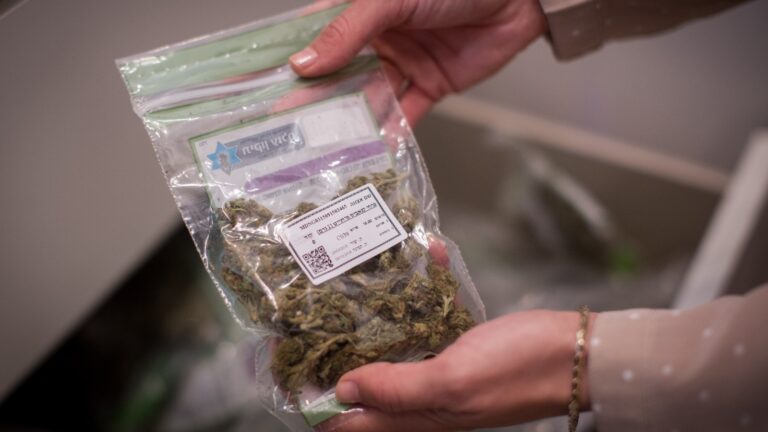A new three-year medical study at Montreal’s McGill University Health Center pain clinic is testing the effectiveness of an ordinary plant food – soy – in preventing chronic pain. The study is being carried out by Dr. Yoram Shir, the native Israeli who directs the center.
After Shir graduated from the Hebrew University’s medical school more than two decades ago, he worked at Hadassah Medical Center, developing a model for studying chronic pain in rats with nerve injuries. The model garnered acclaim in labs around the world, and in 1991 he went on sabbatical to Maryland’s Johns Hopkins University to work with a team that was interested in learning about it.
To Shir’s chagrin, it took a year to successfully replicate the chronic pain model in American rats. “The last thing I tried was changing their diet to an Israeli diet, and surprisingly the rats had the pain again,” he tells ISRAEL21c. “It was really intriguing because I had no idea diet could have anything to do with pain, but of course it makes sense. Diet has a significant impact on multiple other health parameters.”
The pain-relieving properties of soy
Soy (in powdered protein and oil form) is one of several food substances that have already proven effective in decreasing animal pain after laboratory surgery. Shir was particularly intrigued by a study showing that the same amount of soy protein given to rats before injury was much more effective in reducing pain than it was when they received it afterward.
Though Shir was interested in exploring which of the multiple ingredients of soy protein is responsible for these pain-relieving properties, he decided to leave that to others. As director of the McGill clinic since 2002, he saw a more immediate need to take the science out of the lab and to the bedside.
“Chronic pain is incurable in most people,” he tells ISRAEL21c. “Most measures we use today are palliative, easing symptoms but not addressing the underlying problem that might have been going on for months or years. So we’re not so successful.”
Preventing the pain from developing in the first place seemed a better course of action.
Because soy is a natural product, there was no problem gaining approval from the American National Institutes of Health and Health Canada. Shir says the most recent and definitive research shows that soy consumed by healthy women has a significant protective effect against breast cancer and even helps to prevent recurrence. This may be due to its phytoestrogen component that curbs the hormone feeding the cancer. It was also found that soy may have a protective effect for prostate cancer.
One in five suffer long-term pain
Breast cancer patients were chosen for Shir’s study for several reasons, but especially because following mastectomy surgery, 10 to 50 percent might suffer chronic pain. The goal is to get 220 women involved in the testing. Half will receive a powdered soy protein product to replace 50 percent of their daily protein consumption for two weeks prior to surgery. The other half will receive a milk protein product instead. Neither group will know which product it is receiving.
“The exposure is just for two weeks, but we do hope it’s enough to prevent the pain,” he says. “We are doing other studies regarding pain relief after surgery.” In order to follow up with each patient thoroughly, the study will continue through the end of 2012.
Shir says scientists cannot be certain that what works in rats will work in humans. “Chronic pain can be compared to cancer,” he says, “because it is not one-dimensional and cannot be treated by a single factor. It can be caused by a long list of things, and we are not wise enough to know why.”
Statistics released at the 13th World Congress on Pain, held in Montreal at the end of August, suggest that one in five people suffer pain for longer than three months and many are severely disabled by it. Millions of people experience chronic pain as a side effect of infectious diseases like AIDS and metabolic diseases like diabetes, or as a result of trauma, inflammatory disease and surgical procedures.

















